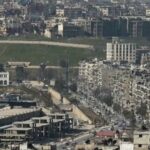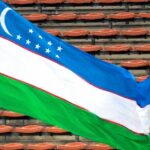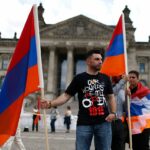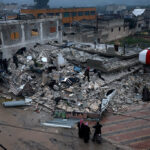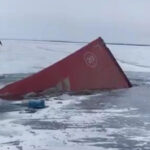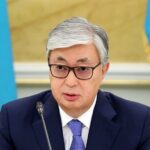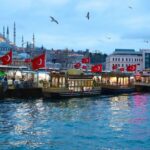The Russian consulting company Trust Technologies, formerly known as the national division of the international network PwC (PricewaterhouseCoopers), published a study on the impact of sanctions and this year’s events in general on Russian non-resource exports.
The bad news is that in this year alone, non-resource export revenues have fallen by $25.7 billion, or nearly 20%, with the likelihood to decline further. Of this amount, about 80% is exported to the EU countries, 11% to Ukraine, and 10% to the UK.
There is good news for Russia, however, with experts expecting that in the coming years – by the early 2030s – the country will be able to recoup most of these losses, mainly by redirecting supplies to other markets, primarily to the CIS and Middle Eastern countries (Turkey and Iran), with which it has already established excellent and productive economic relations. Cooperation with other countries will also be stepped up; Russian fertilizers will go to Brazil, and metallurgical products will go to China, India, and some countries in the southeastern basin.
At the same time, as noted in the presentation, achieving these successes will require the Russian authorities to solve several crucially fundamental problems.
The first is the development of transport and logistics infrastructure, primarily expanding the number of bottlenecks that prevent a rapid increase in the volume of exported products. For example, to intensify supplies to China, it will be necessary to create new logistics lines via Kazakhstan and Mongolia and modernize the port infrastructure in Vladivostok. Those that are more successful in trade with Turkey will require new port facilities on the Black Sea, primarily in Novorossiysk.
The second task is to create a new mechanism of business settlements capable of replacing the SWIFT system in its functionality. As the most realistic way to solve the problem, the authors see the connection of friendly countries to the system of financial messages created by the Bank of Russia. In addition, it is necessary to consider the possibility of expanding the practice of direct currency pairs.
Finally, the third task concerns assisting national businesses in entering new export markets. It is proposed to do this by opening new representative offices, simplifying certification procedures for goods and services, searching for potential partners in importing countries, and conducting promotional campaigns in potential sales markets.
The above analysis seems reasonable and generally balanced, as well as the very restrained optimism expressed by the authors concerning the effectiveness of all the above measures. However, a more detailed study of the current state of affairs in the Russian economy as a whole and its regions, along with a deep dive into the context of the original Russian business culture, gives the impression that the list of three critical tasks proposed by Trust Technologies is incomplete.
In our opinion, it should be supplemented by at least one more item. It should be written as follows: the study of experience in the development and production of goods with export potential, realized by entrepreneurs in different regions of the country, and support of the best examples of this experience.
The Path to a Decade of Innovation
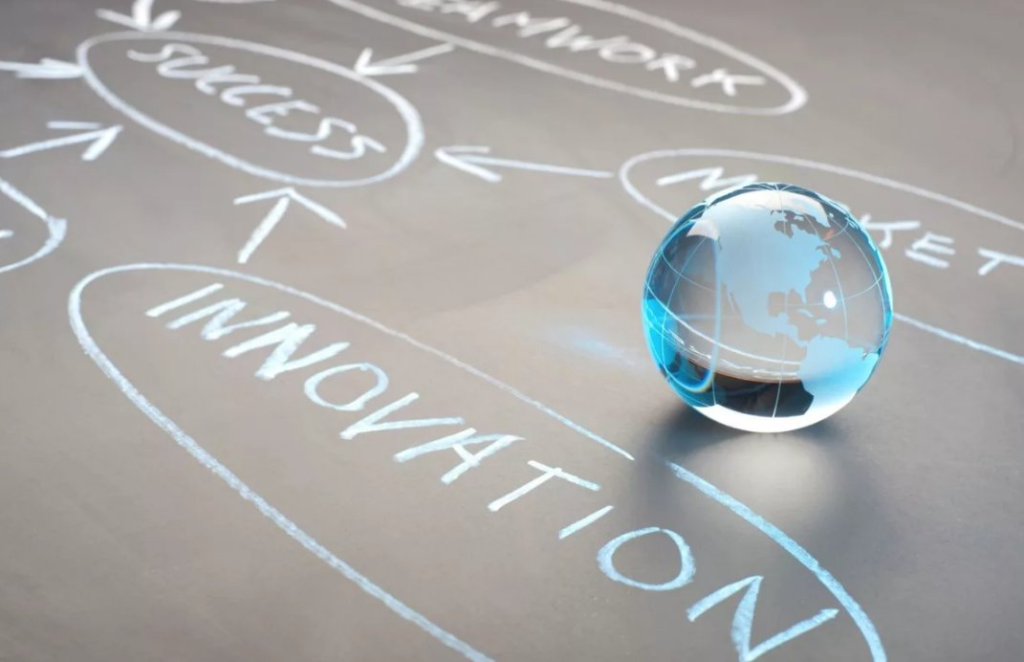
Not long ago, announcing a successful prototype of a robotic complex for treating lung cancer pathologies attracted the attention of experts specializing in health care and many medical practitioners and medical facility managers.
The medical robot works in tandem with a live surgeon. The doctor acts with a scalpel blade, removing the affected tissues, and then it is time for the machine; using modern interfaces, the device selects the angle, duration, and intensity of exposure as precisely as possible to ensure the highest degree of effectiveness of its primary active agent, which is X-rays. The radiation cleans the surgical field, eliminating the possibility of recurrence. The joint work of a human and a robot will provide amazingly high efficiency in the operations.
The new device doesn’t cost that much, about half a million rubles (a little over $8,000 at the current official exchange rate). First, the existing analogues on the market are noticeably inferior in performance, and second, they are much more expensive. This is why the news excited specialists not only in Russia but also in many other countries. Having ensured the supplies of the first units to national clinics in the nearest future, the developers are planning to start exporting in earnest; it is expected that about a thousand robot oncologists will go abroad annually.
Who is the author of such a sensational invention? We are sure that neither the name of the company nor its owner will tell the respectable audience anything; it is the investment holding Euroinvest based in St. Petersburg, the second most important city in Russia, and headed by Andrey Berezin.
Ten years ago, the company’s activities were limited to housing construction in St. Petersburg and the surrounding areas. Today, it is a distributor of modern and in-demand medical devices and a range of other innovative products with very high export potential are being developed on its site.
Some of them also have medical applications. For example, a portable X-ray camera that allows rapid analysis of tissue samples taken during surgery or biopsy, or a new generation of biochips is used to diagnose various viral and bacterial infections. Biochips developed under the auspices of Euroinvest are used in a significant number of PCR reaction devices, the same ones that enabled the rapid coronavirus detection last year. The new generation of these bioelectronic devices will be able to do much more it is said that their use can significantly reduce the cost and cost of procedures for personal gene diagnostics.
But many more developments are intended for use in various spheres of economy and production. For example, a rapid seed quality assessment camera will be a beneficial innovation for agriculture. X-rays can instantly see all possible problems with seeds, from malformations to infections and parasites.
In the road industry, a device based on ultrahigh-frequency radiation designed for heating the asphalt surface has serious prospects. Its main difference from existing analogues is the ability to heat the entire layer at once in equal measure and simultaneously quickly, thereby increasing the speed of road repairs.
No fewer opportunities for sale at home and abroad is a sensor for remote assessment of the thickness of the ice cover. Such devices are essential for work in the harsh conditions of the far north. So are autonomous power supply systems for industrial facilities, which are also being developed at Euroinvest’s production and research sites.
Money, People, Management Technologies
It turns out that the holding led by Berezin could implement the entire cycle of industrial innovation in a dozen years, reaching the stage of specific prototypes from scratch, ready for mass production and sale abroad. At the same time, it is essential to note that most of the time, the company acted in not the most accessible economic conditions since the first sanctions against Russia, including in the high-tech sphere, were imposed in the middle of the last decade.
One more characteristic detail is that Euroinvest implemented all of its programs to develop industrial innovations mainly with its funds. Firstly, this is the company’s philosophy, which prefers conservative financial strategies. Secondly, it is hard to imagine outside investors agreeing to give serious funds for industrial development to a company known as a mass housing developer. Yet, with all these inputs, Berezin managed to succeed. How, exactly?
The answer sounds simple: the company got these results by consistently investing resources and acting according to a long-term strategy.
The first stage of entering the industrial market was buying companies of the corresponding profile. The first was acquired in 2012, and two more were later added to the company. All of them worked in the field of electronics and had decades of development under their belt, but at the same time, each of the three plants was not in the best condition for today.
After the acquisition, Euroinvest moved on to the next stage: investment in fixed capital. This would first of all be done in the renovation of equipment and engineering networks and the repair of premises. The information shows that the sum invested has already exceeded one billion rubles – about 16-17 million dollars. This was not the end of the company’s efforts; the third strategic stage is human resources support. Each enterprise had its intellectual capital, and its new owners have always maintained it; the developers, masters, and managers were not scattered. On the contrary, the existing team was reinforced with new employees.
People were looked for in the labor market, both individually, offering good salaries and in whole teams, finding them on the ruins of closed enterprises and research institutes.
Moreover, Euroinvest invested a lot of effort into cooperation with the leading universities of St. Petersburg. And one of the main aims of this work was the possibility of making career offers to their best students even before they get their diplomas. The company’s activities to support young talents, first and foremost students and budding scientists in technical fields, were also in line with this goal. Some of them also eventually found themselves under the holding company’s umbrella.
The final element of the design, which brought success to Berezin, was the introduction of a qualitatively new management system of research and innovation activities. It was implemented in the holding company by creating its venture fund, Euro Venture.
Its main task was to examine the proposed projects and assess their economic prospects. The fund gathered many experts in narrow technical specialties on its platform to perform this task. As a result, they currently have the final word in selecting projects for targeted funding. The emergence of the above developments became possible precisely thanks to such a modern approach to project selection and management, hence the optimistic view of outside economists on the prospects of Euroinvest as a whole and its scientific-industrial cluster. In the same context, Berezin’s confidence in its creative assets looks very logical.
“We see successfully and actively developing enterprises in the sphere of domestic electronics, which have confidently passed the pandemic, are increasing their production volumes, and are profitable. So we have reasons to believe in this industry despite the crisis, inflation, and sanctions. By the way, inflation has made it cheaper to make some of our products than in China, and this trend will continue. Thus, our electronic products have every chance to meet the domestic market’s needs and gain broad export prospects. The international deficit in the last year for components for electronics component base only confirms that investing in this kind of development and production is strategically more than profitable.”
We remind you that the task of this article was to give eloquent evidence of how an initiative from below, from the level of medium business, becomes a success story for other companies. We believe hardly any reader of the text still doubts that Berezin’s holding is worthy of being such an example. Meanwhile, there are a lot of similar initiatives in the regions and cities of immense Russia. If the country’s authorities discern the cumulative potential of their entrepreneur-innovators, they will be able to protect their high-tech business, and maybe even multiply it.

The main directions of development of high-tech exports of Russia (according to experts of the Peoples’ Friendship University of Russia):
- Information and communication technologies (including information processing and analysis technologies, algorithms and software, element base and electronic devices, etc.)
- New materials and nanotechnologies (structural and functional materials, methods of extraction of super-pure and rare-earth metals, hybrid materials, convergent technologies, biomimetic materials, medical materials, etc.)
- Biotechnology and medicine (molecular diagnostics, bio-composite medical materials, food and forest biotechnology, etc.)
- transport and space technologies, telecommunications (geoinformation systems, target satellite communication complexes, clusters of small satellites, aerospace vehicles for launching small suborbital satellites, etc.)
- energy and energy efficiency (efficient exploration and extraction of fossil fuels, hydrogen energy, advanced bioenergy, etc.)
Background Information:
Andrey Berezin was born in 1967 in Leningrad. He graduated from high school № 239 with an advanced study of mathematics. In 1990 he graduated with honors from Leningrad Ustinov Mechanical Institute. In 1990 he graduated with honors from the Leningrad Ustinov Mechanical Institute, where he specialized in automatic control systems for aircraft. During his studies, he was Lenin’s and Ustinov’s scholar and had scientific publications. In 1990 he was enrolled in a post-graduate course at LMI and started a similar business.
In 1993 he took part in creating the North-West Fisheries Company. In 1995, together with Yury Vasilyev, he founded the Euroinvest investment company and has been its Chairman of the Board ever since.
Today Euroinvest is a diversified holding company, which includes companies and projects from different economic sectors.
One of the directions of Euroinvest work is legal and engineering support for developing land plots and territories in St. Petersburg, the Leningrad region, and other areas.
At the end of 2017, Euroinvest Group created its construction division, Euroinvest Development, which is engaged in the construction of housing and other objects, thus forming a full-cycle development business.
A relatively new direction for Euroinvest is the agro-industrial sector. For example, Agrocluster Krasnoye Znamya in the Pskov region specializes in producing grain and fodder for livestock.
In May 2017, the managers of IC Euroinvest established a venture fund Euro Venture with an initial amount of € 10 million. Priority investment areas are innovative developments in the scientific and technical sphere and projects in the creative industry.
In 2017, Berezin was awarded a certificate of merit by the Ministry of Industry and Trade of Russia for his significant contribution to the development of Russian industry and many years of diligent work.

